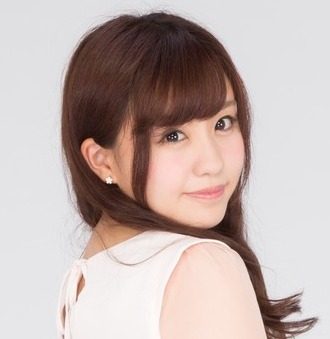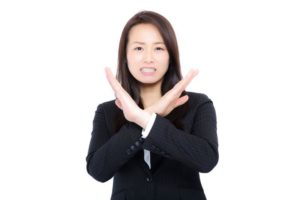“neage” vs. “neagari”:You Should Be Clear About These!
What is the difference between “値上げ(neage) and 値上がり(neagari)”? Which is a subject “store or company”?After reading this, you would be answering this question. Let me introduce what their subtle differences are and how you correctly use them such as native speakers today!
値上げをする (neage wo suru)
Raise price / 涨价 / 가격 인상 / tăng giá
“値上げ (neage wo suru)” means “Raise price” and which has been used as the meaning of “stores or companies raise the price of something”. The basic ways to use it are that “___は/がAの値上げをする。(___ raise the prices of A.)”, etc. For instance, “この店は携帯の値上げをする。(This store raises the prices of the cell phones.)”, “この会社はタバコの値上げをする。(This company raises the prices of cigarettes.)”, etc. The tips for using it are that “THE SUBJECTS OF 値上げをする ARE STORES, COMPANIES OR EVEN PEOPLE”, unlike “値上がり”. Everyone could use “値上げをする” as casual, polite and formal such as “この会社はタバコの値上げをするね。(This company is going to raise the prices of cigarettes.)” as casual and “この会社はタバコの値上げをします。(This company is going to raise the prices of cigarettes.)” as polite and formal. Additionally, native speakers often omit “を” of “値上げをする”, so that would be “値上げする” is also used as casual and polite.
\ Learn Japanese language online with a personal native teacher!/
Sample
値上げをしないでください。 (Please don’t raise prices!) (请不要提高价格。) (가격을 인상하지 마세요.) (Xin hãy đừng tăng giá.) (neage wo shinaide kudasai.)


先月、その会社は輸入食品を値上げしました。 (The company raised the price of imported foods last month.) (上个月那家公司提高了进口食品价格。) (지난달에 이 회사는 수입 식품의 가격을 인상했습니다.) (Tháng trước, công ty đó đã tăng giá thực phẩm nhập khẩu.) (sengetsu, sono kaisha wa yunyū shokuhin wo neage shimashita.)


この会社は来年から携帯の値上げするらしいよ。 (I heard this company is going to raise the prices of the cell phones from next year.) (这家公司好像从明年开始提高手机价格哦。) (이 회사는 내년부터 휴대폰 가격을 올린다나 봐.) (Nghe nói là công ty này sẽ tăng giá điện thoại di động từ năm tới đấy.) (kono kaisha wa rainen kara keitai no neage sururashī yo.)


また値上げしたの? (Did you raise the price again?) (又涨价了?) (또 가격을 올린 거야?) (Lại tăng giá nữa hả?) (mata neage shita no?)
値上がりする(neagari suru)
The price rises, increases, goes up / 价格上涨 / 가격 상승 / giá(…) tăng ,… tăng giá
“値上がりする(neagari suru)” means “The price rises/increases/goes up” and which has been used as the meaning of “the price becomes higher”. The basic ways to use it are that “___は/が値上がりする。(The prices of ___ rise.)”, etc. For instance, “携帯は/が値上がりする。(The price of the cell phones raises/increases.)”, “タバコは/が値上がる。(The price of cigarettes goes up.)”, etc. The tips for using it are that “THE SUBJECTS OF 値上がる ARE THE PRICE OF THINGS”, unlike “値上げをする”. Everyone could use “値上がりする” as casual, polite and formal such as “タバコが値上がったね。(The price of cigarettes goes up.)” as casual and “タバコは/が値上がりました。(The price of cigarettes goes up.)” as casual and polite.
Sample


野菜がどんどん値上がりしてます。 (The prices of vegetables are rising higher and higher.) (蔬菜价格正在逐渐提高。) (채소 가격이 점점 상승하고 있습니다.) (Giá rau đang dần dần tăng.) (yasai ga dondon neagari shitemasu.)


先月、輸入食品は値上がりしました。 (The price of imported foods went up last month.) (上个月进口食品价格上涨了。) (지난 달에 수입 식품 가격은 상승했습니다.) (Tháng trước, giá thực phẩm nhập khẩu đã tăng.) (sengetsu, yunyū shokuhin wa neagari shimashita.)


来年から携帯が値上がりするらしいよ。 (I heard the prices of the cell phones will increase from next year.) (好像从明年开始手机要涨价哦。) (내년부터 휴대폰 가격이 오른다나 봐.) (Nghe nói là điện thoại di động sẽ tăng giá từ năm tới đấy.) (rainen kara keitai ga neagari suru rashī yo.)


また値上がりしたの? (Did the price rise again?) (又涨价了吗?) (가격이 또 오른 거야?) (Giá lại tăng nữa hả?) (mata neagari shita no?)
\ Learn more! /









Comments